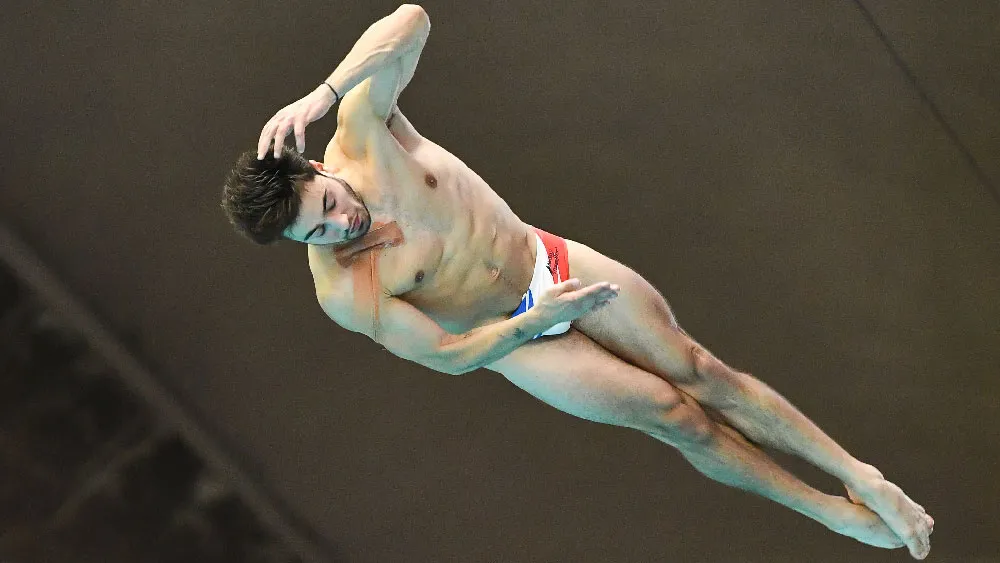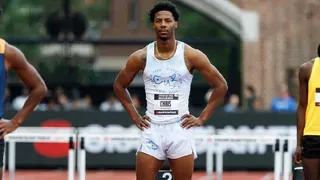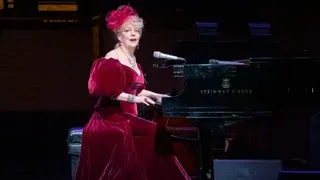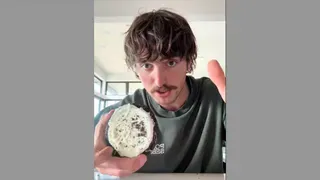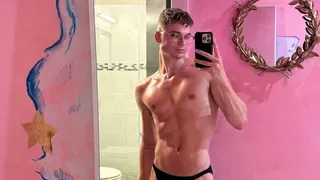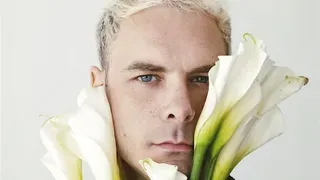June 15, 2008
Mommie Dearest
Michael Wood READ TIME: 9 MIN.
Love, sex, death and plastics. Savage Grace, the new film about the Baekeland tragedy, has it all. Despite the outr? elements of incest and murder, the true tale of the dysfunctional relationship between the brittle socialite Barbara Daly Baekeland and her disturbed gay son Antony, is in some ways a return to familiar territory for director Tom Kalin. He also worked with a true crime story in his first feature film, Swoon, a boldly queer retelling of the Leopold and Loeb murder trial. Although that film was a landmark in the nascent gay cinema of the '90s, Kalin's output since then has been modest compared to contemporaries like Todd Haynes and Gregg Araki. Bay Windows spoke with Kalin, when he was in town for the Boston Independent Film Festival, about the trials of independent filmmaking, directing Julianne Moore, and getting pegged as the guy interested in sexual obsessions.
Q: I know you're only in town for a day so I really appreciate you taking the time to speak with me.
A: You know, I always remember you guys because Bay Windows did a piece on a video series I was part of called Video Against AIDS in the '80s. I remember because that was the earliest part of my career and one of the few press clippings I had was from Bay Windows.
Q: So that was before Swoon.
A: Oh yeah, five years before. So your publication was literally one of the first in the country to give me some attention.
Q: Well I'm glad to continue that tradition. You know I just rewatched Swoon last night, which I hadn't seen in years. I forgot how good it is.
A: Thanks, that's nice of you.
Q: Yeah, way better than Savage Grace.
A: [laughs] That thing! Well of course there are those who like Swoon and don't like Savage Grace. I've had such a gamut of opinions on this movie. I'm just taking it all in, basically. The subject matter makes it a difficult movie. It's not a movie you see very often, what's depicted and the feelings and the world of it.
Q: There are some interesting parallels between Swoon and Savage Grace.
A: There are similarities, of course. They're both stories about symbiotic relationships. They're both set against the American upper class. They both have a collision of elegance and violence. The funny part is that I didn't intend to do these movies back to back. There were two other features I tried to develop between Swoon and Savage Grace that didn't come together. One was about the relationship between Patti Smith and Robert Mapplethorpe, and the other was based on an American rock band called The Monks. Neither of those involved murder or sexual obsession. So if things had gone as planned, Savage Grace would have been sort of a return to these themes. It gives the impression that I have a really strong point of view, but this isn't really my grand design or a niche I'm trying to create. The next thing I plan to do is much lighter.
Q: The timing is also interesting. Swoon was in the Reagan years and now we're in the Bush years.
A: Swoon was much more related to the time it was made in. It's not metaphorical but it was prompted by AIDS in a lot of ways. I wasn't talking about AIDS through Leopold and Loeb, but it had to do with my own personal emotions and the feelings in the world then, my world at least, when lots of people were sick and dying. I think a lot of those early films, like Poison and The Living End, are obviously related to AIDS. But other films from that time can also be seen as fueled by that historical moment. Savage Grace has something to do with the conservative climate we're in, but with Swoon I saw the characters as representing something. Not to compare myself to Arthur Penn, but I love Bonnie and Clyde. And that movie is about Bonnie and Clyde but it's also about the 1960s and the counterculture. And Swoon was in that mold. With Savage Grace, Barbara and Tony and Brooks don't represent anything. They're just characters I find really compelling and disturbing. You can read tons of things in it about family and the limits of love, but they're organically attached to the story.
Q: One of the themes in Swoon was the creation of history. Who gets to tell history, and what version gets handed down. Was that something you were thinking about with Savage Grace? Because this story has been told in the press, and there was the book...
A: One of the attractions of the book is that, because it's a series of first person interviews, it's totally contradictory. Some people say Barbara was riveting and amazing, some people said she was trouble. Some said Tony was tender and lovely, others said he was scary and psychotic. We're lots of different people to the people in our lives, and we're perceived in different ways. And that was exciting to have these characters that no one seemed to agree about. I'm not a believer in trying to explain the characters. And I didn't make this movie because I identify with Barbara or Tony at all, whereas there was an emotional connection with Leopold and Loeb that I tried to make the audience feel. In Savage Grace I want to be very compassionate and show them as human beings, but there's also a sort of coolness or distance. I do have affection for these characters. I think the movie also captures something beautiful and light before things really turn. But getting back to your question, I'm always interested in how history gets formed and how things are known.
Q: You said you had wanted to do this story for a while and I'm curious how involved in the development process you were. You're not credited on the script or as a producer.
A: I initiate everything I do as a director. Christine Vachon and I, the producer I've worked with most, have an unhealthy fondness for true crime books. She gave me this book and said, do you think this is a movie? I immediately said yes, and we pursued it. From '93 to '96 the movie rights were owned by The Really Useful Group, which is Andrew Lloyd Webber's company, insanely. So I spent three years trying to get it going in the U.K. I knew that I didn't want to write the script. I wanted to try working a different way. So I worked with an English writer but it didn't really click. And then I started producing I Shot Andy Warhol and the movie died for the first time. Then I pursued the Patti Smith movie and the movie about the Monks, and those fell apart. But I never forgot Savage Grace, so I went back and re-optioned the book. I worked closely with Howard Rodman in terms of the structure of the script and how to tell this big story in small strokes. Once the first draft was produced, Julianne came on pretty quickly and the movie really got momentum. Her commitment to it is what helped got it made.
Q: So do you approach the shoot differently when it's someone else's script? I'm flashing on the first scene, when Tony says, "Mommy isn't dead, she's just mysterious."
A: Which comes directly out of the book. There's a bunch of stuff in the script that's from Tony's letters and journals. The idea was to meet this logical sounding character that seems fine but is disconnected. The voiceover is an unreliable narrator, and by the end you realize you're hearing Tony after he's cracked. It was fun to work in a different way. All the collaborations in filmmaking are interesting because you dance with people in different ways. The script is very much Howard's, but I conducted it in a way because I was very precise about what I wanted. My next project I'll write alone, or possibly with a second writer. So I just work in different ways. I've had sort of a funny career that way. Most directors don't produce other directors, but I produced I Shot Andy Warhol and Go Fish. I'm interested in a lot of different approaches to making movies.
Q: Tell me about working with Julianne Moore.
A: I think Julianne is one of the most gifted actors working in the world. I was so lucky to have her on board. She really works on instinct. She's not an intellectual or analytical actor. She doesn't walk around the set being Barbara all day. She's very light, in a way. So our process was really about getting to know each other and what my point of view of the story was. I think the director's job is to focus the audience's attention, not to tell the actor how to do her job. So the way we worked was to sort of create a framework. I gave her the book, and a ton of letters from Barbara, and we talked about how the character dresses and what Barbara's world looked like. And then you just try to create a situation where the actor has the freedom they need to take the risks they're capable of, and you don't get in the way. It's different for different actors, which I find fascinating. Steven Dillane and Eddie Redmayne are English actors and more rehearsal based.
Q: It's almost a clich? to talk about actors taking risks, but there's so much in Savage Grace that's taboo or emotionally raw. And not just the obvious things like what happens on the last day. What really stuck with me is the bathtub scene when Barbara asks Tony to clean her stitches.
A: God, yeah. She's completely naked in front of him, and at the end of the scene she says, "Scoot so I can get dressed." And of course there's also a scene earlier with Tony in the bath. This is one of the reasons you should read the book, because it has these amazing pictures. Including one of 11-year-old Tony naked in the bath, and the photo is clearly taken by Barbara. And it's sweet and beautiful, but then you think he's naked and performing for the camera. Anyway, yes, I think the scene between them in the bathtub is a really important one because it shows how what started between them in Majorca, the three of them sharing a bed, has become normal and that they're kind of like husband and wife. Their intimacy has crossed some kind of line. On the one hand it's tender and strangely erotic to put cream on someone's wound, but also totally disturbing. They're both amazing in that scene. There are so many scenes along the way that set up the ending, and there's so much shading that the actors bring.
Q: The whole film is amazing. But disturbing.
A: I'm making a lighter one next! I'm working on two things. One is from a novel, which is interesting because I've never worked from pure fiction before. And the other is a sweet, unrequited romance set against the backdrop of Hollywood in the early '30s. It follows the relationship of an actress and a censor. It's based on things that happened but not on anyone's actual life. So that's a different way of working for me.
Q: I love the pre-Code era, so that sounds great. Get going on that!
A: I'm working on it!
Q: I'm sure you always get asked this, but what do you think of the state of gay cinema today?
A: It's so hard to define what the hell it is. Which in a lot of ways is a great thing. I mean, Brokeback Mountain is moving and compelling, but is it a queer movie? Ang Lee is clearly heterosexual and it's a movie that crossed over into the mainstream. It also became a joke, which shows the not-so-latent homophobia in our culture. But audiences responded to it. I think that's great. I think New Queer Cinema was a very useful term to talk about a group of films that came out of a moment, but none of us sent each other a memo saying let's start a movement. It seems hard to imagine, but there was no Queer Eye or Will and Grace then. Madonna was someone you looked to, because there was queer content in her videos. It's sort of hard to believe how much has changed. If you told me in 1990 that in twelve or fifteen years the two biggest issues would be marriage and gays in the military I would have been surprised.
Q: We have more outlets and venues for queer content now, but I'm not sure we're doing work as interesting or challenging as the New Queer Cinema.
A: We've had a terrible Republican regime for eight years and there's been plenty to be outraged about. Weirdly, there hasn't been much outcry and pushing back. I find that surprising. I also think it's very hard now to make a film aimed just at a gay and lesbian audience. Financers want to see movies that can cross over. It has to do with saturation of the culture. And there's progress in that, that it's not a big event to have a gay movie. The biggest question is, what does queer cinema mean? Is it made by queer filmmakers or is it about the content? I don't really know. I was slightly surprised that Savage Grace got pegged as a queer movie, since most of the relationships are heterosexual. It's interesting that if two men have sex, the movie automatically gets identified as queer.
Michael Wood is a contributor and Editorial Assistant for EDGE Publications.
